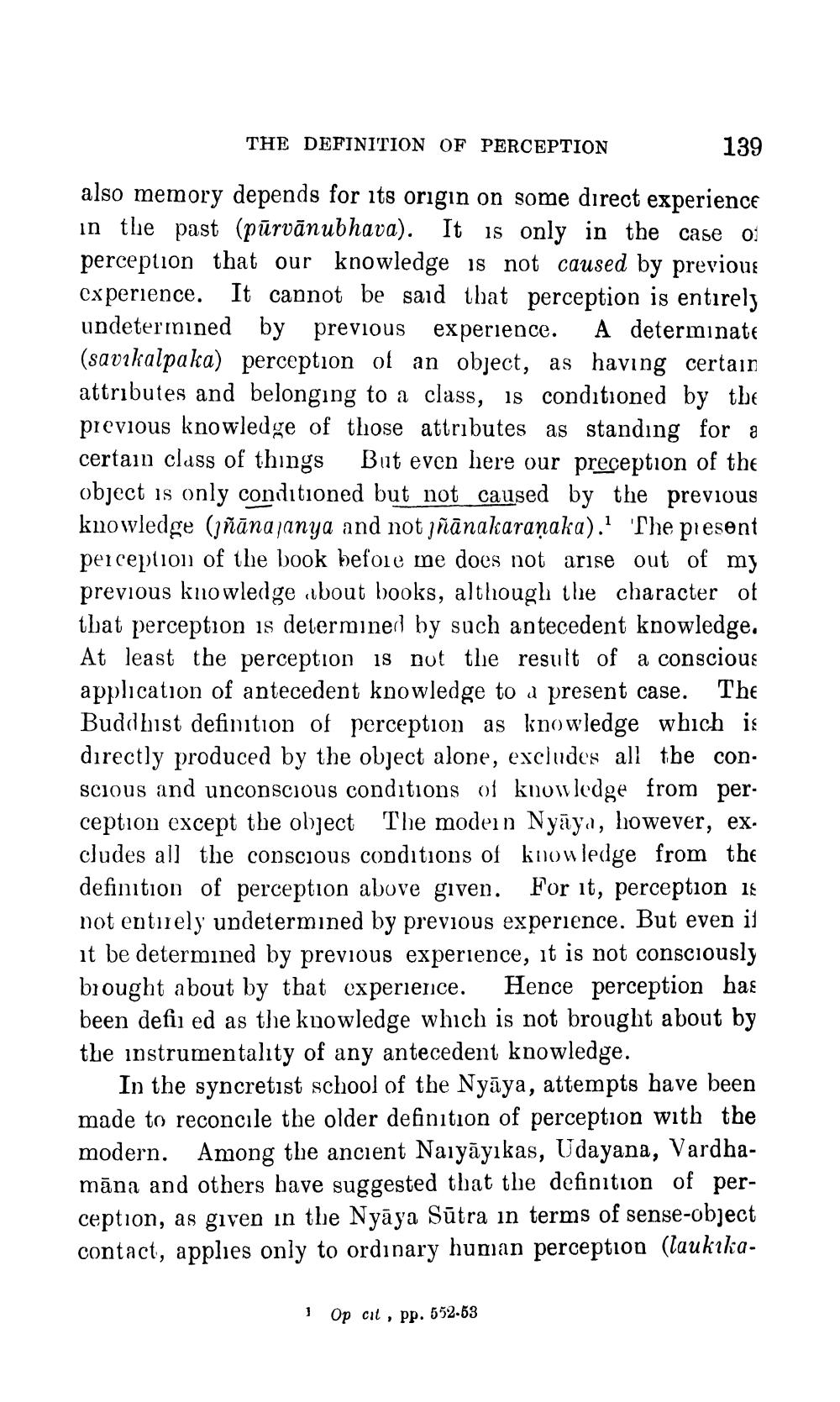________________
THE DEFINITION OF PERCEPTION
also memory depends for its origin on some direct experience in the past (purvānubhava). It is only in the case of perception that our knowledge is not caused by previous experience. It cannot be said that perception is entirely undetermined by previous experience. A determinate (savikalpaka) perception of an object, as having certain attributes and belonging to a class, is conditioned by the previous knowledge of those attributes as standing for a certain class of things But even here our preception of the object is only conditioned but not caused by the previous knowledge (jñānajanya and not jñānakaraṇaka).' The present perception of the book before me does not arise out of my previous knowledge about books, although the character of that perception is determined by such antecedent knowledge. At least the perception is not the result of a conscious application of antecedent knowledge to a present case. The Buddhist definition of perception as knowledge which is directly produced by the object alone, excludes all the conscious and unconscious conditions of knowledge from perception except the object The modern Nyaya, however, excludes all the conscious conditions of knowledge from the definition of perception above given. For it, perception is not entirely undetermined by previous experience. But even if it be determined by previous experience, it is not consciously brought about by that experience. Hence perception has been defii ed as the knowledge which is not brought about by the instrumentality of any antecedent knowledge.
In the syncretist school of the Nyaya, attempts have been made to reconcile the older definition of perception with the modern. Among the ancient Naiyayikas, Udayana, Vardhamana and others have suggested that the definition of perception, as given in the Nyaya Sutra in terms of sense-object contact, applies only to ordinary human perception (laukika
1 Op cit, pp. 552-53
139




